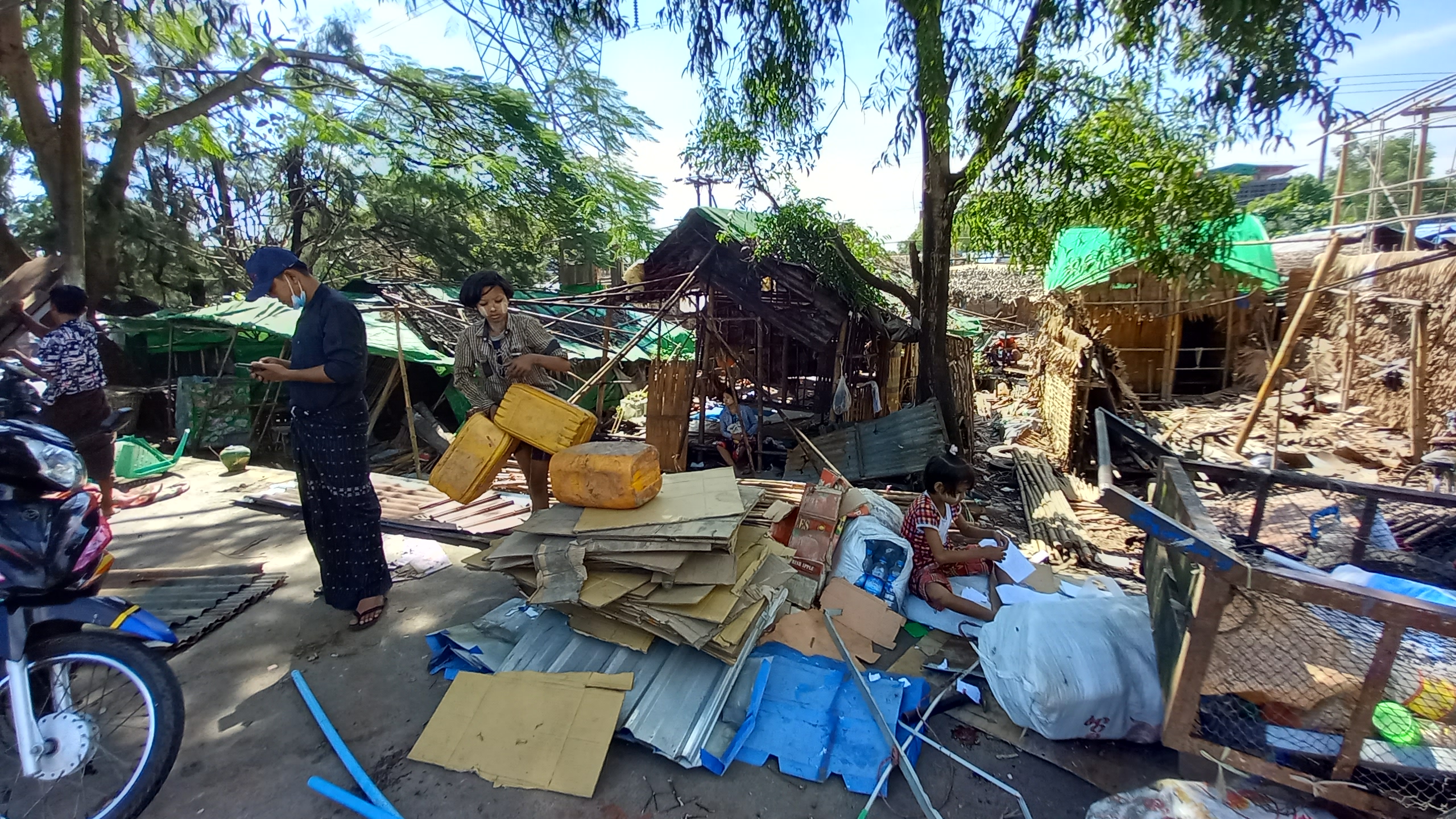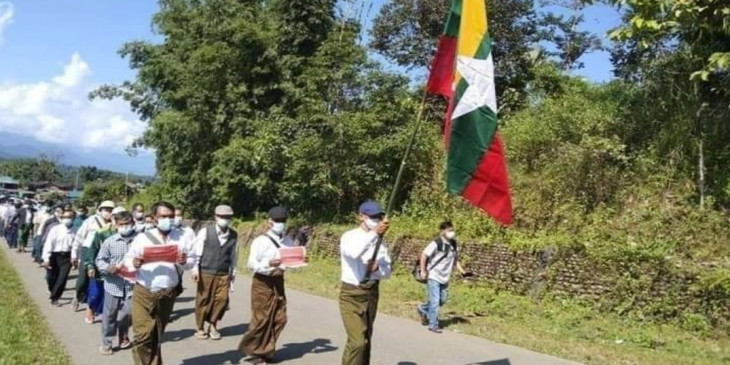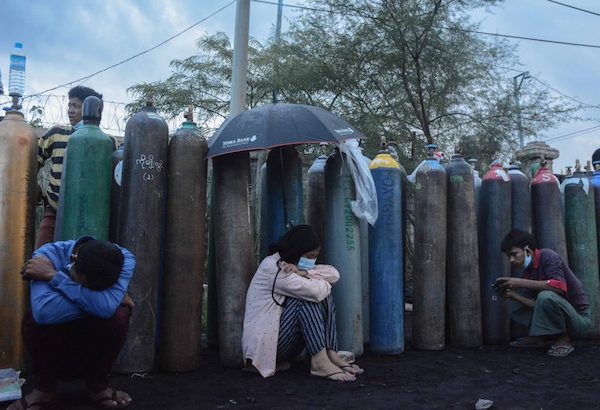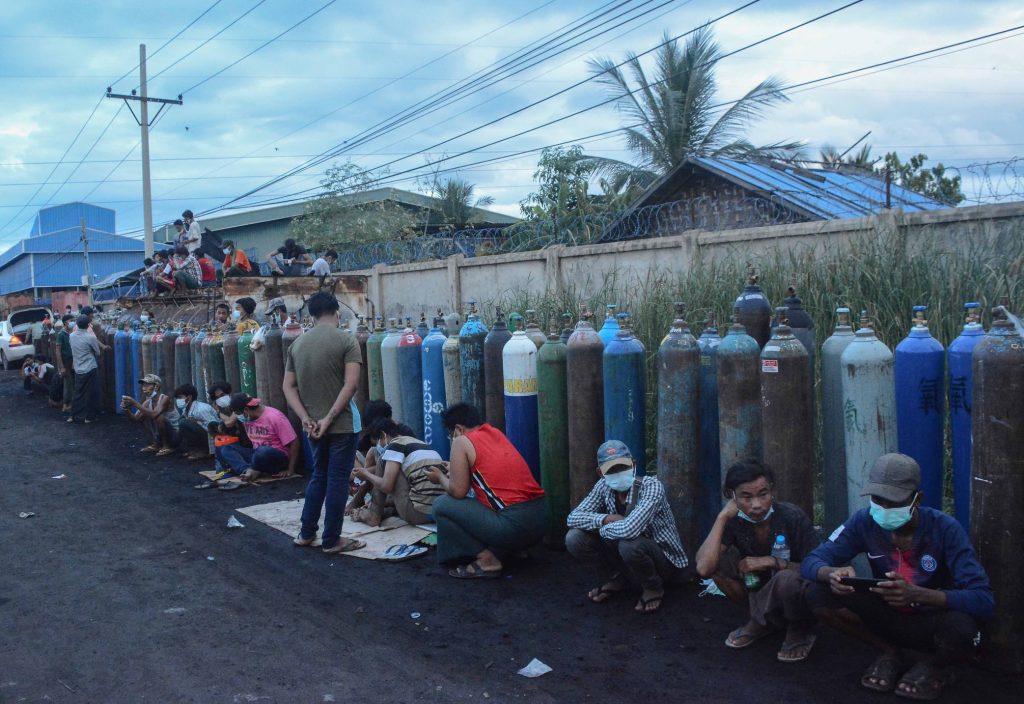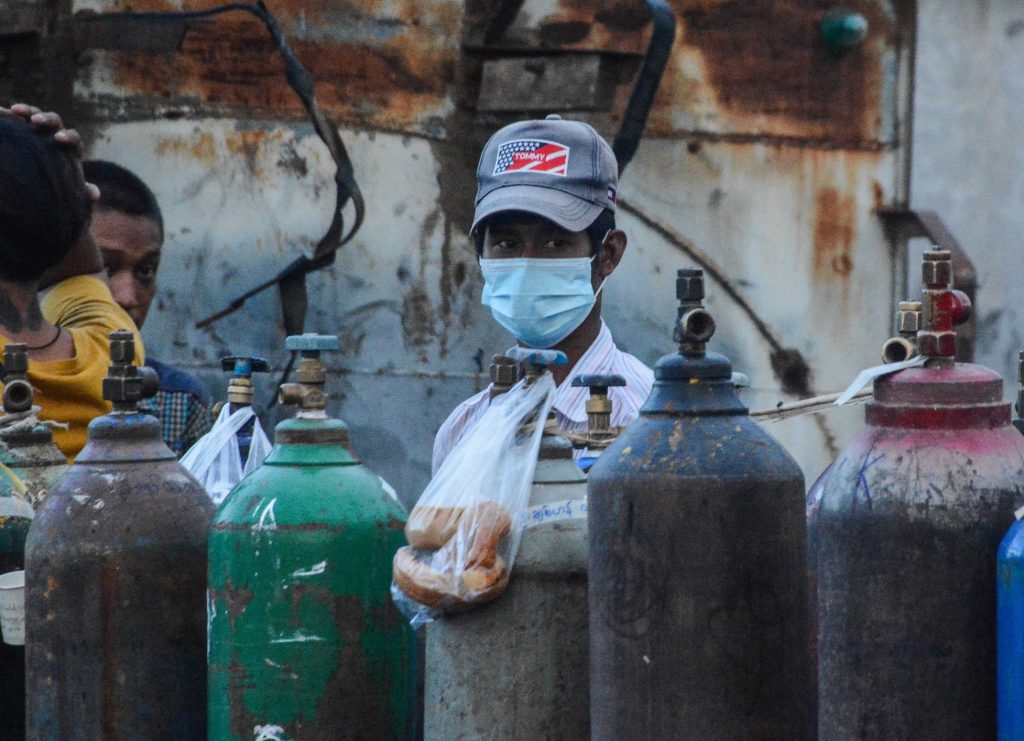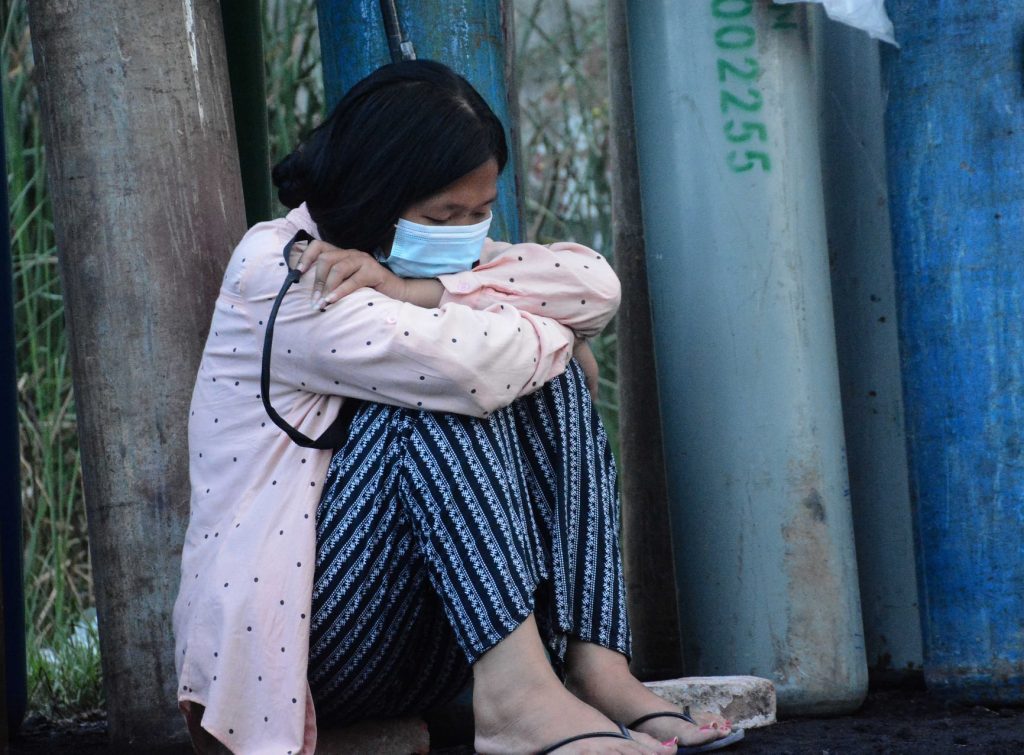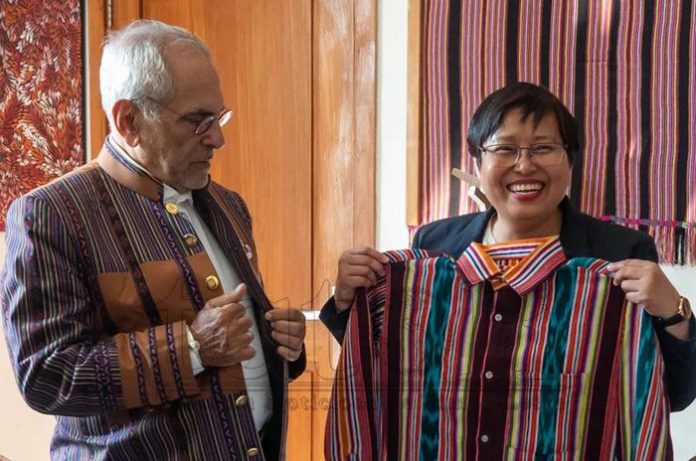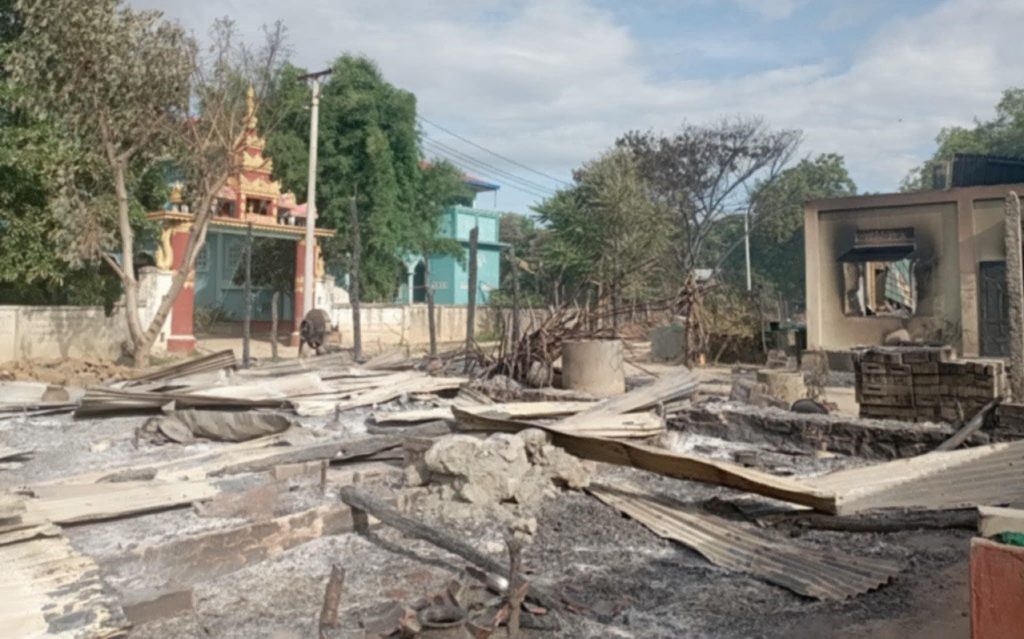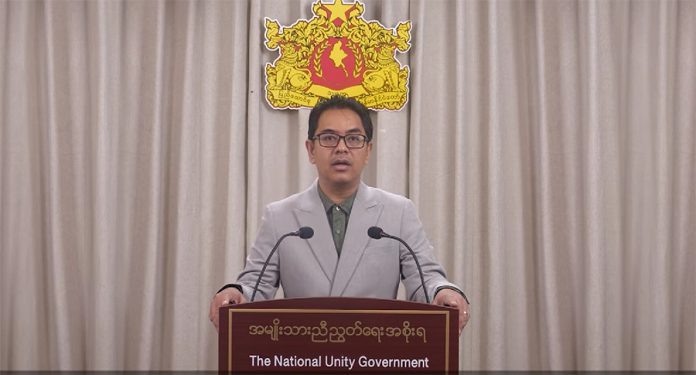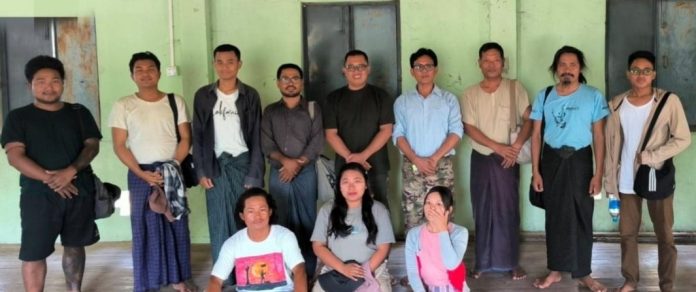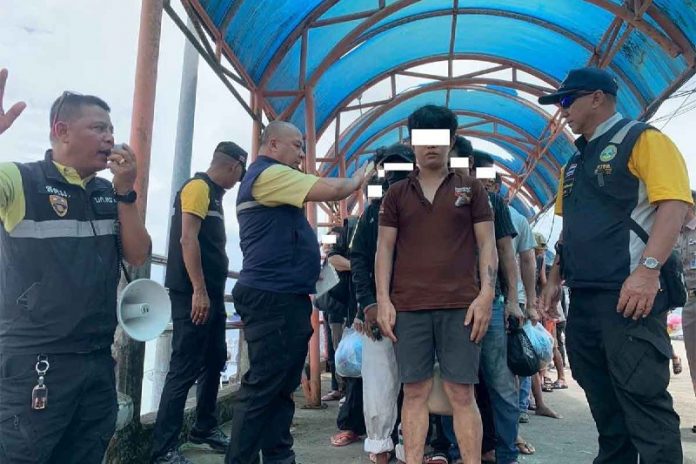A life’s worth of possessions are stacked in a heap on the ground. The owner of the ragged parcels, U Maw, looks in the other direction, at an imposing pile of timber that once was his home.
Yesterday morning, as soldiers looked on—fingers aching towards their triggers—U Maw had been forced to destroy what he once built on this land by his own labor. Around him, neighboring families had been ordered to deconstruct their homes, piece by piece, by themselves.
“We have no choice but to destroy the things that we built with our own hands. Otherwise the soldiers will destroy everything, and that will make everything useless,” U Maw said, despairingly.
On October 25, the Township General Administration Department of the Southern District of Yangon ordered the removal of businesses and settlements beside the Dagon-Thilawa Road. Three days later, approximately 100 people, including municipal leaders and armed security forces, arrived at the site, ready to perform a total clearance.
The eviction ran from 7 a.m. to 5 p.m., soldiers ripping apart the settlement’s famous dry food stores, slowly tearing down every obstacle in their path until they reached Kalawal village on the banks of the Bago River.
The morning of October 28 was an historic tragedy which had been long-delayed for Yangon’s squatters, an understated humanitarian disaster in Burma’s most developed urban area.
Whilst troops were beginning the destruction of Thanlyin’s settlements, a similar scene was already underway on the other side of town.
To the north, in Hlaingtharyar, security forces had earlier closed the two arterial Bayintnaung Bridges that connect the township to central Yangon, leading to a huge backlog of trucks and cars blocking roads into Hlaing.
“There are between 7,000 and 8,000 squatters along the Yangon-Pathein highway, and half of them are moving this morning as a force of soldiers, police, members of YCDC [Yangon City Development Committee], and plainclothes security forces have arrived,” said a local man supporting the squatters.
Military trucks entered Hlaingtharyar at around 6.30 a.m. yesterday morning, in tow: two bulldozers and some expectant prison vans.
“On seeing the convoy, some took their belongings; some even took pieces of their home,” the local man said.
“However, most of those moving were the wealthier few whose businesses had been doing alright; the working class residents didn’t leave. When I asked them what they would do, they said that they’d have to settle another empty plot because they’re unable to afford rent, and have nobody to go to for help,” he said.
The settlers from both sides of Yangon were moving following an ultimatum delivered by the military just three days previously.
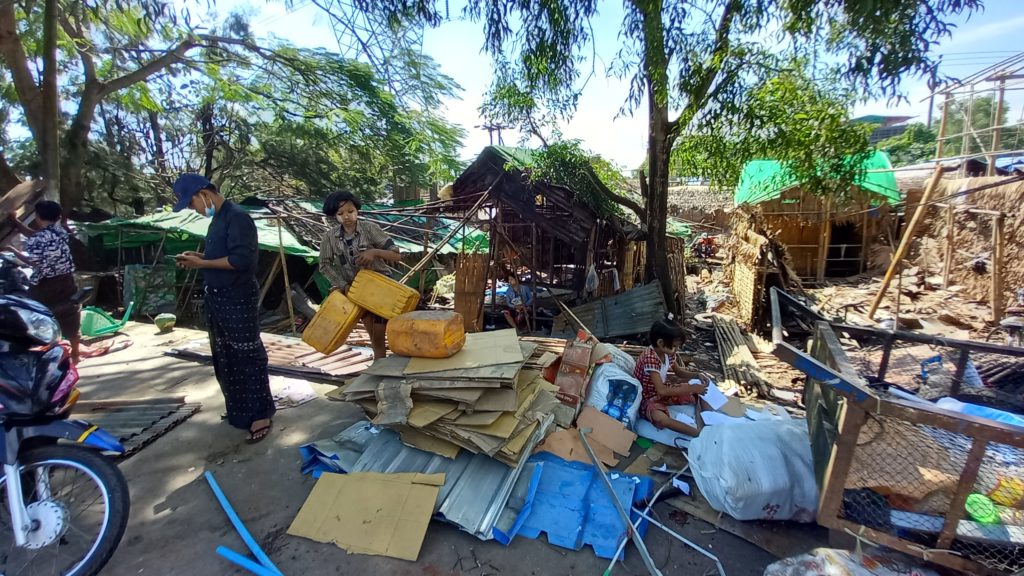
Despite the settlements hosting both homes and well-established small businesses for decades, the junta announced on October 25 that it was to demolish all homes. On the day of the announcement, 70 people were taken into temporary custody in Hlaingtharyar after protesting the order.
When troops returned, resistance was muted.
“I believe the police and military had guns, most were threatened with detainment if they didn’t comply… Though it seems they are willing to do worse,” said one foreign social worker who had arranged transport for those fleeing the clearances.
“We had a small team […] taking lists of those who wanted to go to their hometowns and those who wanted to be moved to another location. However the volume is much much larger than we anticipated, originally we were told 100-150 people, then 1000-2000. Now there is a possibility of 20,000 in total, according to a contact.”
She told DVB that, due to the presence of troops, it had been too dangerous to transport those leaving yesterday. Her group will now ferry settlers today and into the weekend, “before the Tatmadaw burns everything”.
Whilst soldiers intimated those in Hlaingtharyar, a similar scene was unfolding in Thanlyin.
“The soldiers ordered us to sign an eviction notice, if not they said they will shoot us,” U Maw said.
“Nobody dares to go against them as they carry weapons. I just had to watch them tear down the tents with bulldozers,” he added.
“They didn’t want anyone to take photos of the eviction, and it is still going on,” added a local Red Cross Society member.
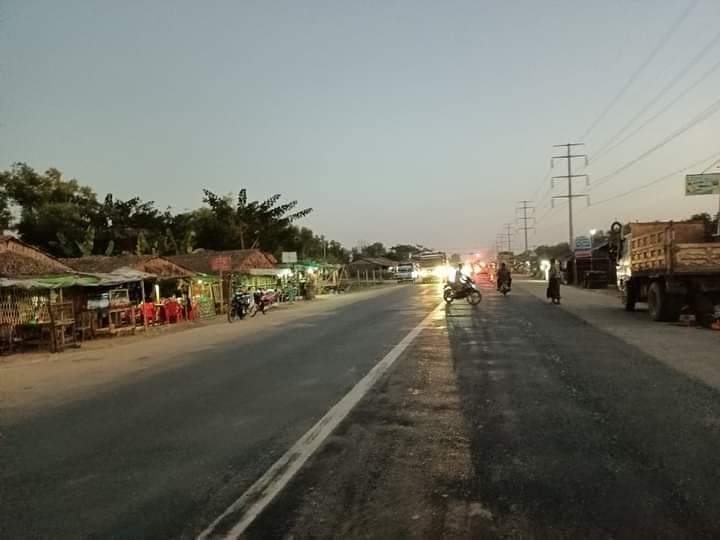
Like U Maw, a majority of the squatters with no place to go have congregated by the side of the road, watching others depart.
Established by the SLORC in 1998 as a resettlement for 300,000 migratory inhabitants of Yangon’s Downtown area, the settlements on the Yangon-Pathein Road also hosted thousands of people who fled the Ayeyarwady delta region following 2008’s Cyclone Nargis.
Under the NLD government, more than 250,000 squatter households had been issued resident certificates for Yangon Region, and plans were well underway to allow them to eventually get access to low-income housing.
Similarly, over 200 households have been located beside the No.2 Thanlyin Road for almost a decade, many of whom run small businesses; over 50 well-known dry food stores, fuel shops, and tea, coffee, and palm wine sellers lined the road, a source of both shelter and sustenance for local farm laborers from the surrounding fields of Thanlyin. Residents had made an agreement with Hluttaw representatives that they believed allowed them to stay.
Only now, with a dominant and unaccountable military rule over the land—held in the name of the state and military-backed landowners—have clearances become a reality.
“Now it is all gone. They cut down the foundations of homes and destroyed everything: the place is empty now. Some people who have no place to go, like us, are sitting by the road with their belongings. I don’t know what to do,” said U Hla Htay, one of those now searching for a new beginning.


